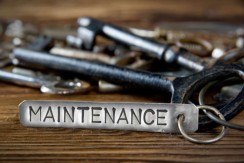The simple logic that works when investing in commercial property is that you spend money today and let it increase so that you have money tomorrow. The aim, here, is to make profit out of the return that you receive. This return should be more than your investment.
This will help you cover the risks you take and the taxes you pay. The regular maintenance of the property that you are investing in also gets taken care of. The catch, here, is that things could go real bad if you make a mistake. In order to avoid mistakes, you should know the fundamentals of investing.
Following are the eight different fundamentals for commercial property or real-estate investing for beginners:
Ascertain if commercial property investing is the correct strategy for you: Real-estate transactions can be complex. This could help you if the particular property fits the correct financial strategy to satisfy your financial goals.
· Cash flow: Clearly as the name suggests, a cash flow property requires comprehension and management of your expectations. As the property changes, the strategy that you must keep in your mind will also change. Your job, here, should be to know your expectations, manage them properly and then calculate if the property will meet those expectations and reach your financial goals.
· Value add: A value add property is one that needs to be furnished in some way or the other before people come and live there. Basically, the property would need renovation and maintenance. Now, while adding values to this property, your cash flow would be low. Once, the value adding process is done, the cash flow (as well as the sale value) would be higher as you eventually sell the property.
· Holding time frame: There is a fair time frame that properties take to be finally leased out. For value-add properties, it is around one to three years. For cash flow properties, they are naturally ready to be leased out instantly. It is the income from these properties that are used to invest in other properties. Read this guide on asking the right questions prior to acquiring a commercial property.
· Admiration: You must want to take into account the potential appreciation that commercial properties hold. Before you decide to sell, there are some parameters that would help you determine how long to hold the property for. For example, rental price rates, business rate, demand of land etc.
Comprehend commercial property financing: Financing is different for commercial and residential properties. Meeting high incomes while making a large investment can be difficult.
Interest rates: The interest rates depend on the commercial prime rate. They also depend on the system of the bank: whether they have a fixed or floating interest rate.
AM period: Every amortization period comes with pros and cons. Longer AM has high interest rates but lower debt payment. Shorter AM has lower interest rate but a high debt payment.
Loan length: The length of the loan generally tallies with the lease length.
Learn to read a commercial rental property proforma:
Gross revenue: The revenue that you would earn if you had 100 percent occupancy is known as the gross revenue.
Vacancy: When calculating vacancy, investors tend to generate financial models based off of 5 percent less than the occupancy rate.
Operating expenses: The maintenance, management, renovation and tax fees - all fall under operating expenses.
Debt service: This refers to the debt payment, excluding the operating expenses.
NOI: This is calculated when the taxes are taken out and after the operating services are met. This excludes the debt service.
CAP: NOI expressed as percentage is CAP rate.
Comprehend the triple net lease: If you are looking for a low risk passive strategy, this is the one!
Rent and sales: Study the recent sales and the rent prices in the area before investing in it.
Grade of tenant: The tenant must be trustworthy and be backed by a public company.
Comprehend the role of property management for commercial property: Commercial and residential property management are two different things. The role of a property manager differs with the type of property concerned. It also depends on the amount he is paid. If the owner shows no sign of concern, the property manager will demand high rates.
Of course, even after following the above steps, things could go disastrously wrong if made minor mistakes. You might even have to pay very high prices. Or it might even turn out perfectly smooth. But that is how you must learn. The aim of the article was to help you understand the basics well enough so that you know what you are doing before you do it. We hope this article helped you. Reach out to us and let us know whether it helped you understand how to start as a beginner.










Author
Naymee Akter